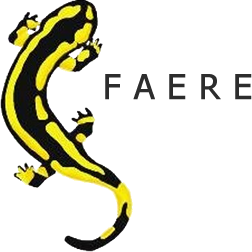Characterization of the socio-economic stakes of air pollution, climate change and mitigation policies at territorial level
Context
Social justice issues are central to the definition of public policies to combat climate change and air pollution, as these two environmental challenges share points of synergy (but also of antagonism). It is therefore important to assess the differentiated impacts within a population of policies (e.g. low-emission zones, support for thermal renovation, etc.) aimed at meeting these challenges. But beyond this, understanding the challenges of social justice also requires to take into account the fact that the impacts of climate change (heatwaves, flooding, clay shrinkage and swelling, etc.) and exposure to atmospheric pollutants are differentiated, as are contributions to emissions. On the other hand, the impacts of climate change and air pollution are also likely to have an impact on residential location choices, which will determine both environmental exposure and emissions.
The CLIMAIR project is funded by the ANR (https://anr.fr/Project-ANR-21-CE03-0006). Its aim is to evaluate scenarios for mitigating greenhouse gas (GHG) emissions and air pollution, as well as scenarios for adapting to climate change while preserving air quality. The aim is also to provide local authorities with recommendations for coherent public policies in terms of pollution and GHG emissions. The project’s field of study is the Grenoble urban area. The issues addressed in the post-doctorate offer constitute one of the project’s WPs, WP focused on the socio-economic dimensions of the scenarios studied in the project.
Launched in October 2022 for a period of 4 years, the project brings together an interdisciplinary consortium with complementary skills in the fields of climate, atmospheric sciences, urban air quality, epidemiology, environmental economics, social sciences, in particular socio-spatial inequalities, and geography.
Activities
The main activities of the post-doctoral contract are as follows:
* continue the analysis concerning the VulMob indicator of vulnerabilities in terms of mobility. The aim is to carry out a comparative assessment of different public policy tools aimed at reducing GHG and pollutant emissions on vulnerabilities in the Grenoble context, and to draw up a typology of different urban contexts at national level in terms of vulnerability profiles and of socio-differentiated impacts of different public policy tools (low-emission zones, congestion charging, etc.),
* assess the impact of environmental perceptions on residential location choices. The aim is firstly to continue the analysis of data already collected at national level in the context of residential location choice models, and secondly to carry out a survey and analysis through residential choice modeling in the Grenoble area.
Other research issues could also be addressed (e.g. socio-spatial inequalities in terms of contributions to emissions, or differentiated impacts of policies to support thermal renovation) depending on the aspirations of the person recruited.
Skills sought
PhD in economics or equivalent
* Statistical tools for database analysis,
* Spatial clustering methods,
* Mastery of mapping tools,
* Solid skills in applied econometrics (in relation to environmental issues, residential location choices, transport mode choices, etc.), discrete choice models (MNL, LC, ICLV), structural equation models, spatial econometrics, R and Apollo (and/or Python and Biogeme),
* survey design and tools such as Sphinx,
* fluency in English required,
* ability to work independently and take initiative in a team environment,
* good writing skills.
Working environment
The person recruited will be based at the GAEL (Laboratoire d’Economie Appliquée de Grenoble), a joint research unit between CNRS, INRAE, Université Grenoble Alpes and Grenoble INP, with a staff of around 70. GAEL’s research focuses on sustainable innovation and consumption, particularly in the energy and agro-industrial sectors. Research is organized into three areas: Consumption, Energy/Environment, and Innovation. The candidate will integrate the energy axis. The research conducted within GAEL’s Energy/Environment department aims to understand and assess the impact of energy and climate policies. The team is developing a high-level research activity in applied and academic economics, and enjoys a high profile at national, European and international levels.
The person recruited will work in interaction with economists from GAEL and economists and geographers from CESAER (Dijon) under the responsibility of Sandrine Mathy (DR CNRS GAEL), and will interact regularly with all project researchers as part of project monitoring meetings.
Travel to project meetings or to other project laboratories is envisaged, as is participation in conferences.
General informations
Contract duration: 12 months renewable
Planned start date: April 1, 2024 (flexible date)
Working hours : Full time
Remuneration: Between €2905 and €4081 gross per month, depending on experience.
Level of education required: Level 8 – (Doctorate)
Desired experience: 1 to 4 years post-doctorate
Application
To apply, please send your latest diploma, CV and cover letter by Tuesday January 30, 2024 to Sandrine Mathy (). Letters of recommendation will be appreciated.
Contact: Sandrine Mathy, CNRS senior researcher in Environmental Economics at GAEL, email:
Job location : Grenoble (France)Nature of the job : Post-doc
Contact person : Mathy Sandrine,
Application deadline : 30/01/2024
